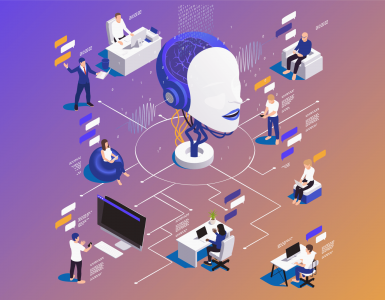The modalities of work drastically changed over the last few years as companies were no longer relying on legacy approaches. Many began leveraging the full force of technology and it wasn’t long before they started digitalizing core practices at scale. This led to remote work becoming mainstream, both due to circumstance and popular demand. As of 2022, 30% of employees work remotely and most would choose to do so going forward. But as AI and automation were readily integrated into the operational model, companies had to rethink their hiring strategies. Modern workforces couldn’t function solely on technical prowess, which is when companies started paying more attention to a candidate’s soft skills.
In a digital environment, collaboration, communication, analysis, decision-making, and others are key attributes. This is especially important when managing distributed teams as it dictated accountability and efficiency. In fact, almost 89% of recruiters have stated that the lack of such skills is the reason many candidates are not hirable. This makes sense considering that softs skills add career durability, a trait that is required in ever-evolving ecosystems. Naturally, these skills were soon viewed as power skills, and companies look for them in candidates to hire appropriately.
Here are some insights on the transition, factors responsible for the shift, and trends to watch for.
Revised demands of skills to align with automation
As automation takes hold in companies, many jobs will get absorbed and won’t require the human element. But, as advanced as the technology is, there are a few tasks that simply can’t be replaced or handled by AI & automation. For instance, emotional intelligence, people management, and creativity are core traits required to manage employees, innovate, and communicate. These are also classified as higher cognitive skills and will likely not get replaced by automation.
The same can’t be said for basic cognitive skills, which includes basic numeracy and literacy, as automation is already absorbing most of these responsibilities. As such, employers have shifted their focus and see higher cognitive skills as mission critical. These guide leaders, managers, communicators, and innovators in the workforce.
Rising demand for emotional intelligence
Work culture is constantly evolving and a major shift was observed during the pandemic. Here, emotional intelligence stood out as an important soft skill through which individuals were able to navigate the new challenges that arose. It enabled individuals to develop crucial skills such as:
- Conflict resolution
- Collaboration
- Leadership
- Negotiation
These were gaining importance as work cultures are very different in the modern world. Organizations shifting to remote models were, and are, struggling to manage the evolving emotional needs of their own workforce.
Additionally, emotional intelligence helps empower employees to attain professional and personal goals, contributing more effectively to organizational growth. Some of the most valuable skills currently are:
- Team player
- Problem-solving and decision making
- Open or free communication
- Planning, organizing and prioritizing
- Obtaining and processing information
These skill sets help employees look at problems in a creative manner, and gives them the ability to address their own problems. This also helps employees adjust easily to new situations while maintaining productivity.
Soft skills in focus across major industrial sectors
The focus on soft skills varies across major industrial sectors and many companies are changing their policies to adapt to the new norm. Automation is a common factor leading the transition, and the need for basic cognitive skills within these sectors is decreasing. This was a common trend noticed in the banking, energy, retail, and manufacturing sectors. Across these key sectors, these are the soft skills likely to stay in focus for the decade.
- Healthcare: Adaptability, entrepreneurship, and analysis
- Energy & Mining: Creative thinking, communication, and emotional intelligence
- Banking & Insurance: Social skills, communication, and emotional intelligence
- Retail: Management, empathy, interpersonal skills, and information processing
- Manufacturing: Analysis, collaboration, negotiation, leadership, and adaptability
As automation and AI improves and continues to widen their reach, this list of skills is sure to grow and include more complex skills. Advanced communication, information processing, creativity and a general mastery over IT infrastructure are early estimates.
Considering the shift, companies are now adopting new strategies to build effective workforces. While several strategies can work, an efficient route is to pick from a trusted talent sourcing channel. You can enjoy this benefit when you partner with Talent500. Trusted by global leaders to build, manage, and scale remote teams, we help optimize the hiring endeavor at every step.
With over 200,000 pre-vetted professionals, you can establish a global presence, bolster remote teams and even leverage the EOR model to expand to new markets. To know more and hire effectively, schedule a consultation.






Add comment